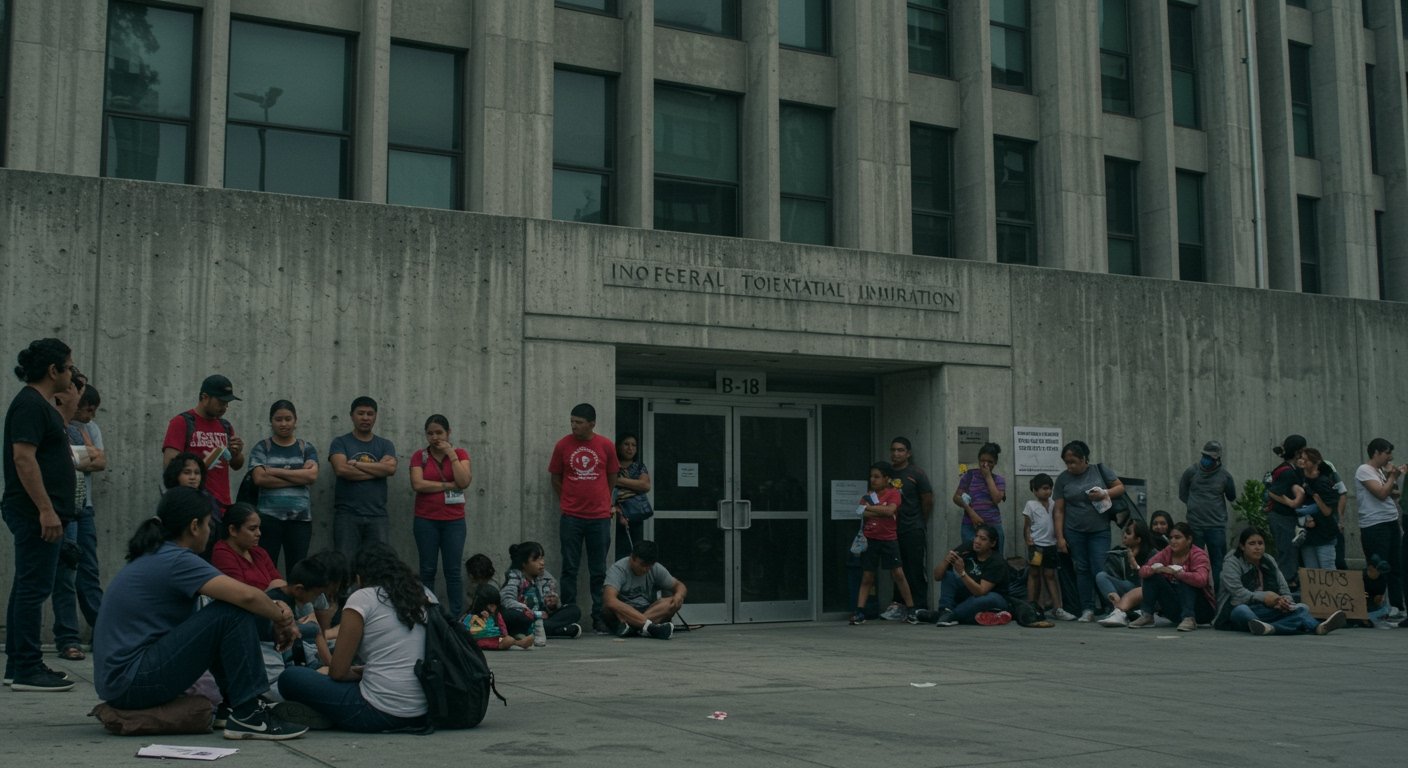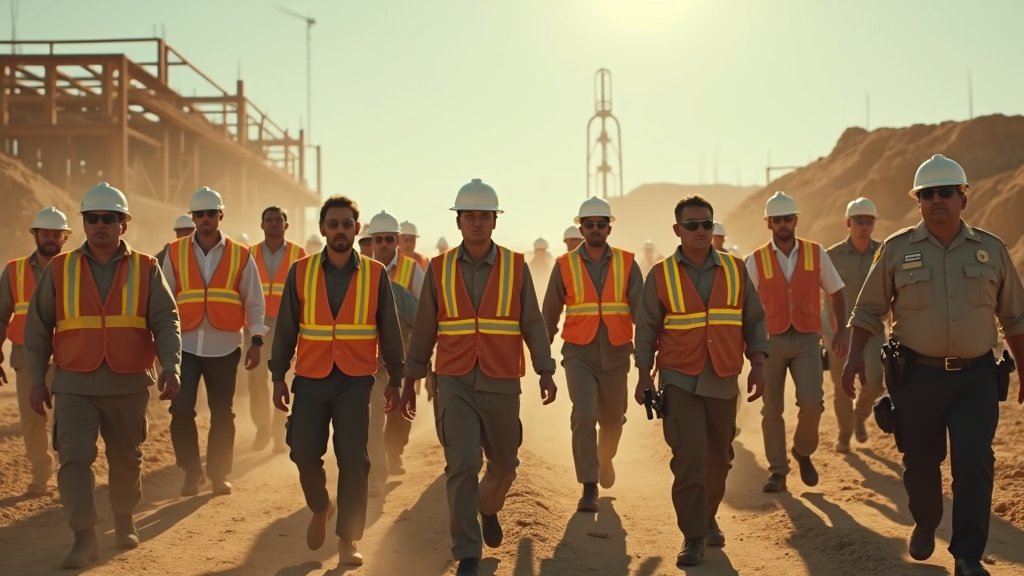Families Seek Answers Amid Heightened ICE Enforcement in Los Angeles
DOWNTOWN LOS ANGELES – Outside a formidable federal immigration building in downtown Los Angeles, where U.S. Marines stand guard, a vigil of worried families and dedicated lawyers unfolds daily. They gather, some waiting for hours, driven by a desperate need for information about loved ones swept up in a new wave of aggressive Immigration and Customs Enforcement (ICE) raids that commenced on June 6, 2025, and show no signs of abating.
The scene is one of palpable anxiety and frustration. Many converge on a specific basement door, designated B-18, the only apparent portal for inquiries. Yet, hope is often met with disappointment; numerous individuals are reportedly turned away without receiving confirmation regarding whether their relative is even inside the facility. The lack of transparency amplifies the distress of those already facing uncertainty.
Disturbing Accounts Emerge from Within Detention Center
Adding to the concerns are alarming reports emanating from inside the detention center itself. Accounts filtering out to families and legal advocates detail what are described as horrific conditions. Among the most disturbing claims are allegations of inmates being forced to drink water from toilets, painting a grim picture of the environment endured by those detained within the facility’s walls.
Raids Impact Diverse Communities Across Los Angeles
These raids have not been confined to typical enforcement actions; their breadth and nature have deeply impacted communities across Los Angeles. Enforcement actions have been observed in unexpected, public locations, including Home Depot parking lots, car washes, and even in front of popular taco stands. The suddenness and visibility of these operations mean families often learn of detentions not through official channels, but via social media videos capturing the arrests in real-time.
The individuals ensnared in this dragnet represent a wide cross-section of immigrant communities, hailing from various countries. Among those reported detained are nationals from Mexico, Guatemala, India, Iran, China, and Laos, underscoring the far-reaching impact of the enforcement surge across diverse populations in the region.
Personal Stories Highlight Human Cost
The human toll of these operations is perhaps best illustrated through personal narratives shared by the affected families. Christina Jimenez is one such individual, her life upended by the detention of her 61-year-old stepfather. A hardworking day laborer, he was arrested despite Ms. Jimenez having cautioned him about the increased raid activity in their area. Her story is a poignant reminder of how these large-scale operations affect individuals and dismantle families, regardless of their long-established lives and contributions.
Protests and Political Backdrop
The intensified enforcement has ignited public protest. Demonstrations against the raids have taken place outside the federal building, mirroring the frustration felt by families. Visible expressions of dissent include messages scrawled onto the building’s exterior walls, some explicitly referencing President Donald Trump, highlighting the political context surrounding the current immigration enforcement policies.
Compounding the fears of many families is the recent Supreme Court ruling which permits the deportation of individuals to third countries. This judicial decision has added a new layer of anxiety, as families worry not only about the detention and potential deportation of their loved ones but also about the possibility of them being sent to unfamiliar nations other than their country of origin.
The ongoing situation outside the Los Angeles detention center serves as a stark visual representation of the profound impact that large-scale immigration enforcement actions have on families and communities, leaving many navigating a confusing and distressing landscape in search of answers and hope.





